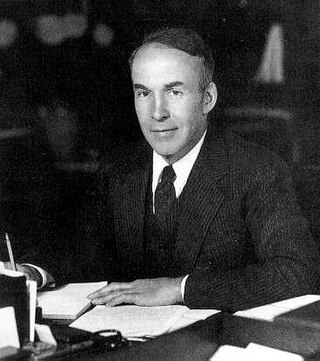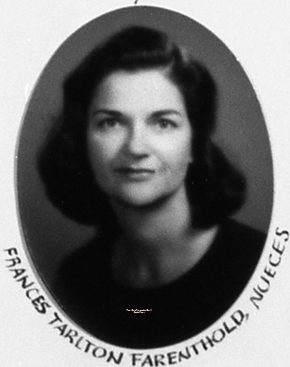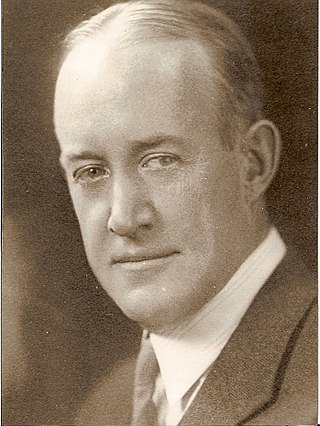Career
Wright taught at the University of Texas from 1922 to 1926. In late 1926 Wright began teaching at Harvard from 1926 until coming to Smith in 1949. While at Harvard, he was the chairman of the Government department and served on the special Harvard Committee on General Education. He was a member of the Harvard faculty: from 1928 to 1940 an assistant professor, from 1940 to 1945 as associate professor and from 1945 to 1949 as a full professor. [2] Wright was one among several authors of the "renowned" report published in 1945 by the Committee entitled, general Education in a Free Society. In 1949 he became the fifth president of Smith College, serving until 1959. [3] [4] After leaving Smith College, Wright she became a fellow for a term of one year at the center for Advanced Study in Behavioral Science, at Stanford University in California. In 1950 he returned to the University of Texas as a professor of government where he taught until the year before his death. [1] [4] [2]
"The Office of the President: Benjamin Wright Papers" are in the possession of Smith College Library and are primarily related to his official duty while he served as President of Smith College. The papers consist of correspondence, memoranda, reports, legal documents, speeches, minutes, and newspaper articles. [3]
Wright died on Sunday, November 28, 1976, at his home in Austin, Texas, at the age of 76. [1] [2]

Barbara Charline Jordan was an American lawyer, educator, and politician. A Democrat, she was the first African American elected to the Texas Senate after Reconstruction, the first Southern African-American woman elected to the United States House of Representatives, and one of the first two African Americans elected to the U.S. House from the former Confederacy since 1901, alongside Andrew Young of Georgia.

Archibald MacLeish was an American poet and writer, who was associated with the modernist school of poetry. MacLeish studied English at Yale University and law at Harvard University. He enlisted in and saw action during the First World War and lived in Paris in the 1920s. On returning to the United States, he contributed to Henry Luce's magazine Fortune from 1929 to 1938. For five years, MacLeish was the ninth Librarian of Congress, a post he accepted at the urging of President Franklin D. Roosevelt. From 1949 to 1962, he was Boylston Professor of Rhetoric and Oratory at Harvard. He was awarded three Pulitzer Prizes for his work.

Nadine Strossen is an American legal scholar and civil liberties activist who served as the president of the American Civil Liberties Union (ACLU) from 1991 to 2008. A liberal feminist, she was the first woman to lead the ACLU. A professor at New York Law School, Strossen is a member of the Council on Foreign Relations and other professional organizations.

Sul Ross State University (SRSU) is a public university in Alpine, Texas. The main campus is the primary institution of higher education serving the nineteen-county Big Bend region of far West Texas. Branch campuses, branded as Rio Grande College, are located in Del Rio, Uvalde, Eagle Pass, and Castroville.

Edward Hirsch Levi was an American legal scholar and academic. He served as dean of the University of Chicago Law School from 1950 to 1962, president of the University of Chicago from 1968 to 1975, and then as United States Attorney General from 1975 to 1977 under President Gerald Ford. Levi is regularly cited as the "model of a modern attorney general", the "greatest lawyer of his time", and is credited with restoring order after Watergate. He is considered, along with Yale's Whitney Griswold, the greatest of postwar American university presidents.

Richard Ghormley Eberhart was an American poet who published more than a dozen books of poetry and approximately twenty works in total. "Richard Eberhart emerged out of the 1930s as a modern stylist with romantic sensibilities." He won the Pulitzer Prize for Poetry for Selected Poems, 1930–1965 and the 1977 National Book Award for Poetry for Collected Poems, 1930–1976. He was the grandfather of Pittsburgh Pirates general manager Ben Cherington.
Valdimer Orlando Key Jr. was an American political scientist known for his empirical study of American elections and voting behavior. He taught at Johns Hopkins University and Harvard.

Robert Gordon Sproul was the first system-wide president (1952–1958) of the University of California system, and a president (11th) of the University of California, Berkeley, serving from 1930 to 1952.

James Skelly Wright was a United States circuit judge of the United States Court of Appeals for the District of Columbia Circuit and previously was a United States district judge of the United States District Court for the Eastern District of Louisiana.

The history of Harvard University begins in 1636, when Harvard College was founded in the young settlement of New Towne in Massachusetts, which had been settled in 1630. New Towne was organized as a town on the founding of the university, and changed its name two years later to Cambridge, Massachusetts, in honor of the city in England. It is the oldest institution of higher learning in the United States.

Charles Alan Wright was an American constitutional lawyer widely considered to be the foremost authority in the United States on constitutional law and federal procedure, and was the coauthor of the 54-volume treatise, Federal Practice and Procedure with Arthur R. Miller and Kenneth W. Graham, Jr., among others. He also served as a special legal consultant to President Richard Nixon during the congressional investigations into the Watergate break in and coverup, and for a time was the president's lead lawyer.
Charles Tilford McCormick was an American university professor.

Mary Frances Tarlton "Sissy" Farenthold was an American politician, attorney, activist, and educator. She was best known for her two campaigns for governor of Texas in 1972 and 1974, and for being placed in nomination for vice president of the United States, finishing second at the 1972 Democratic National Convention. She was elected as the first chair of the National Women's Political Caucus in 1973.

Austin Tappan Wright was an American legal scholar and author, best remembered for his major work of Utopian fiction, Islandia. He was the son of classical scholar John Henry Wright and novelist Mary Tappan Wright, the brother of geographer John Kirtland Wright, and the grandfather of editor Tappan Wright King.

Thomas Campbell Clark was an American lawyer who served as the 59th United States Attorney General from 1945 to 1949 and as Associate Justice of the Supreme Court of the United States from 1949 to 1967.
Achille Murat Willis Jr. was an American insurance executive, civic leader, political adviser, Congressional staffer, and public university regent. From age 30 on, he lived in Longview, Texas. From 1965 to 1983, Willis was one of nine regents for the University of North Texas. Three consecutive six-year appointments by three Texas governors added-up to eighteen years of public service. During that time, the UNT Board of Regents elected Willis chairman for ten consecutive annual terms, from 1969 to 1979.
Conyers Read was an American historian who specialized in the History of England in the 15th and 16th centuries. A professor of history at the universities of Chicago and Pennsylvania, he was president of the American Historical Association for the year 1949–1950.

Julia Harwood Caverno was an American classical philologist.














